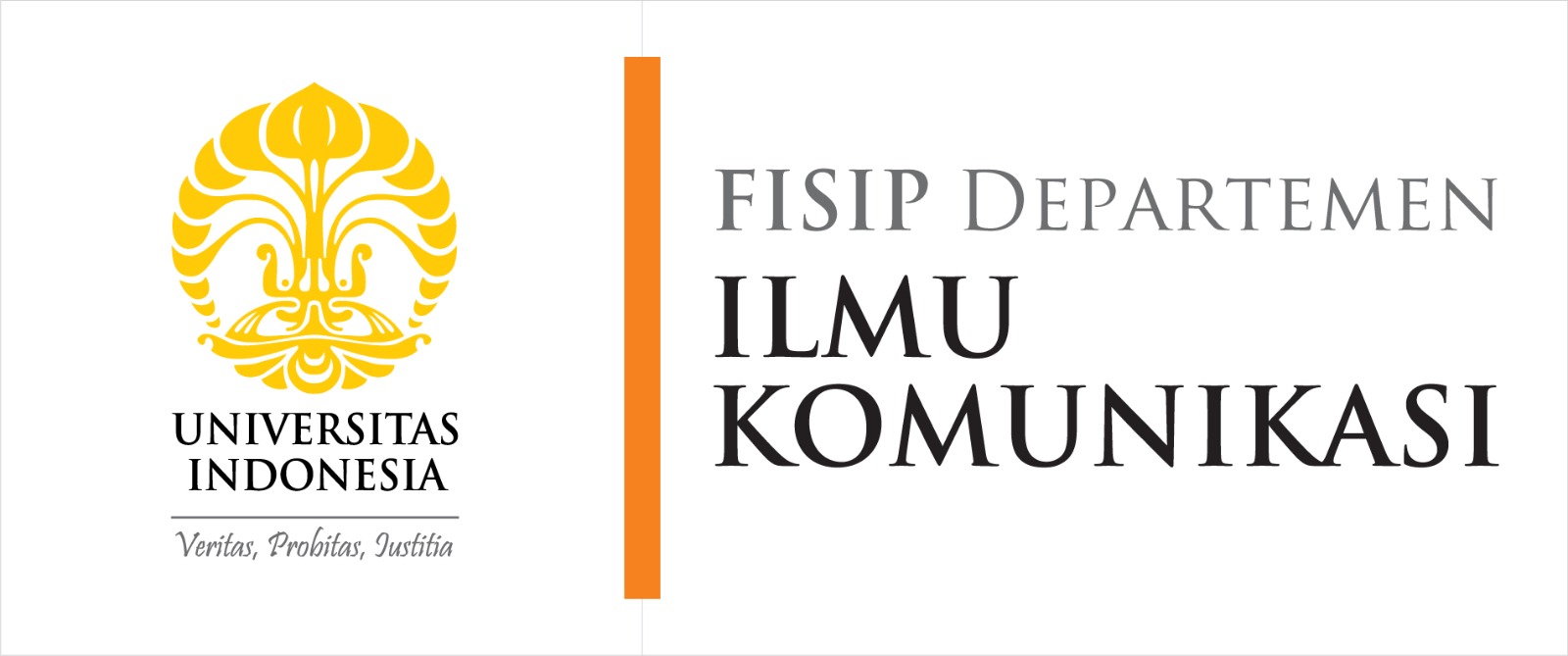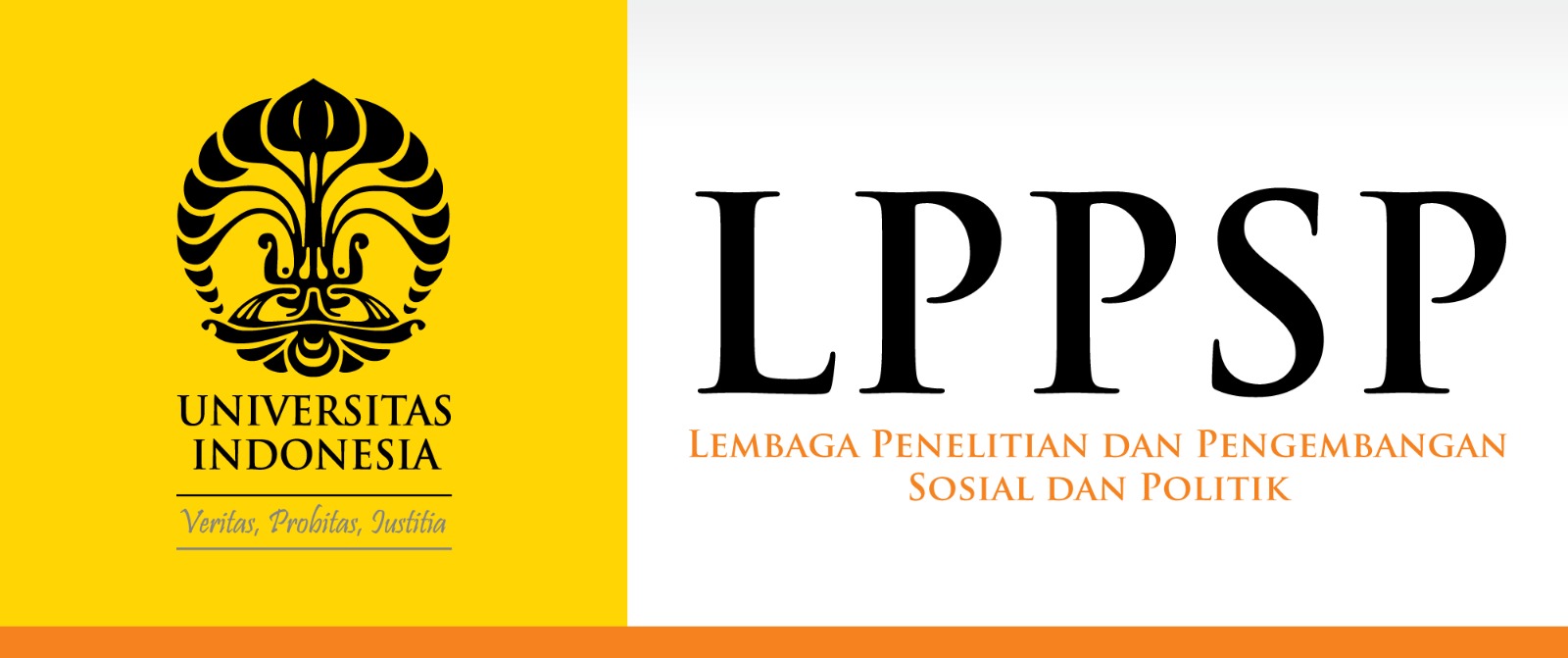JURNAL KOMUNIKASI INDONESIA
Abstract
This article explores how the emergence of the online community of motherhood on social media can become a medium of counter-hegemony against the discourse of motherhood. The concept of “ibuism” as a picture of an ideal mother’s parenting form in Indonesia is justified as the standard of a “good mother” that has been socially constructed for a long time. The dominant discourse has been internalized from generation to generation by Indonesian women. However, this discourse negates other narratives that are important for women. Therefore, the online motherhood community on social media emerged to overcome these challenges and mobilize women to provide opposing narratives through social media as counter space. By using the perspectives of Counterpublic and Counter-Hegemony, the researcher argues that online communities on social media have the power to construct new discourses against hegemony. Specifically, the researcher argues that social media is an alternative space to fight dominant narratives, especially those taboo to discuss. This qualitative study will look at the Halo Ibu community and the Komunitas Ibu Profesional (Professional Mother Community) on Instagram through content observations and interviews. In conclusion, the emergence of online communities on social media can act as an agency to create counter-narratives through content and the use of social media as a space of resistance.
References
Abetz, J., & Moore, J. (2018). “Welcome to the Mommy Wars, Ladies”:
Making Sense of the Ideology of Combative Mothering in Mom- my Blogs. Communication, Culture and Critique, 11(2), 265–
281. https://doi.org/10.1093/ccc/tcy008
Afrilia, A. M. (2017). Penggunaan New Media Di Kalangan Ibu Muda Sebagai Media Parenting Masa Kini. Jurnal Komunikasi Dan Kajian Media, 1(1), 31–42.
Arnold, L. B. (2016). Confession in 140 Characters: Intensive Mothering and the #BadMom Twitter. In L. B. Arnold & B. Martin (Eds.), Taking The Village Online : Mothers, Motherhood, and Social Media (p. 44). Demeter Press.
Arnold, L. B., & Martin, B. (2016). Taking The Village Online: Mothers,
Motherhood, and Social Media (L. B. Arnold & B. Martin (Eds.)). Demeter Press.
Athique, A. (2013). Digital Media and Society: An Introduction.
In Digital Media and Society. Polity Press. https://doi. org/10.1057/9781137393630
Bailey, E. R., Matz, S. C., Youyou, W., & Iyengar, S. S. (2020). Authentic self-expression on social media is associated with greater sub- jective well-being. Nature Communications, 11(1), 1–9. https:// doi.org/10.1038/s41467-020-18539-w
Barnes, S. B. (2002). Computer-Mediated Communication: Hu- man-to-Human Communication Across the Internet. Pearson Publication.
Benhabib, S. (1992). Models of Public Space: Hannah Arendt, the Liberal Tradition and Jürgen Habermas. In C. Calhoun (Ed.), Situating the Self: Gender, Community and Postmodernism in Contemporary Ethics (Vol. 30, Issue Special, pp. 73–98). Polity Press.
Carroll, W. K. (2010). Social Movements and Counter-Hegemony: Les- sons from the Field. New Proposals - Journal of Marxism and Interdisciplinary Inquiry, 4(1), 7–22.
Carroll, W. K. (2006). Hegemony, Counter-hegemony, Anti-hegemony.
Annual Meeting of the Society for Socialist Studies, June 2006,
9–43.
Castillo, R. P. (2018). There’s no “me” in “Imgur”: Applying SIDE theory and content analysis to viral posts on Imgur.com. The Hilltop Review, 11(1), 3. https://scholarworks.wmich.edu/cgi/viewcon- tent.cgi?article=1337&context=hilltopreview%0Ahttps://schol- arworks.wmich.edu/hilltopreview/vol11/iss1/3/%0Ahttps://lens. org/190-397-381-137-412
Chin, G. V. S. (2018). State ibuism and one happy family: Polygamy and the “good” woman in contemporary indonesian narratives. Asia in Transition, 6, 89–106. https://doi.org/10.1007/978-981-10-
7065-5_6
Cole, K., & Renegar, V. R. (2016). The “Wicked Stepmother” Online: Ma- ternal Identity and Personal Narrative in Social Media. In L. B. Arnold & B. Martin (Eds.), Taking The Village Online : Mothers, Motherhood, and Social Media (pp. 30–32). Demeter Press.
Cox, R. H., & Schilthuis, A. (2012). Hegemony and Counterhegemony. In
The Wiley-Blackwell Encyclopedia of Globalization. John Wiley
& Sons, Ltd. https://doi.org/10.1002/9780470670590.wbeog265
De Vries, A. (2015). The use of social media for shaming strangers: Young people’s views. Proceedings of the Annual Hawaii Inter- national Conference on System Sciences, 2015-March, 2053–
2062. https://doi.org/10.1109/HICSS.2015.245
Dedees, A. R., & Noviani, R. (2020). The Discourse of (Re)Motherhood in Online Media: A Critical Study of the Corruption News on Tem- po.co. Journal Communication Spectrum, 10(1), 33–51. https:// doi.org/http://dx.doi.org/ 10.36782/jcs.v10i1.2003
Djajadiningrat-Nieuwenhuis, M. (1987). Ibuism and priyayization: Path to power? In E. Locher-Scholten & A. Niehof (Eds.), Indonesian women in focus: Past and present notions (p. 43). Foris Publi- cations.
Eschmann, R. (2021). Digital Resistance: How Online Communica- tion Facilitates Responses to Racial Microaggressions. So- ciology of Race and Ethnicity, 7(2), 264–277. https://doi. org/10.1177/2332649220933307
Fraser, N. (1992). Rethinking the public sphere: A contribution to the critique of actually existing democracy. Public Space Reader,
26(25), 34–41. https://doi.org/10.4324/9781351202558-6
Germic, E. R., Eckert, S., & Vultee, F. (2021). The Impact of Insta- gram Mommy Blogger Content on the Perceived Self-Effi- cacy of Mothers. Social Media and Society, 7(3). https://doi. org/10.1177/20563051211041649
Gibbons, A. (2019). Counterhegemony. In Keywords in Radical Ge- ography: Antipode at 50 (First Ed., Issue March, pp. 74–77). John Hopkins Center for Transatlantic Relations. https://doi. org/10.1002/9781119558071.ch13
Gibson, A. (2019). Free Speech and Safe Spaces: How Mod- eration Policies Shape Online Discussion Spaces. So- cial Media + Society, 5(1), 205630511983258. https://doi. org/10.1177/2056305119832588
Halo Ibu. (2021). www.haloibu.id
Hampton, K., & Wellman, B. (2001). Long distance community in the network society: Contact and support beyond Net- ville. American Behavioral Scientist, 3, 476–495. https://doi. org/10.1177/00027640121957303
Hartoyo, N. M., & Supriadi, D. (2015). Aktivisme Sosial Melalui Penggu- naan Media Sosial: Studi Kasus Asosiasi Ibu Menyusui Indo- nesia (Aimi). Jurnal Kajian Komunikasi, 3(1), 1–11. https://doi. org/10.24198/jkk.vol3n1.1
Hasford, J. (2016). Dominant Cultural Narratives, Racism, and Resis- tance in the Workplace: A Study of the Experiences of Young Black Canadians. American Journal of Community Psychology,
57(1–2), 158–170. https://doi.org/10.1002/ajcp.12024
Hyunanda, V. F., Ramírez, J. P., López-Martínez, G., & Meseguer-Sán- chez, V. (2021). State ibuism and women’s empowerment in indonesia: Governmentality and political subjectification of chinese benteng women. Sustainability (Switzerland), 13(6). https://doi.org/10.3390/su13063559
Jiang, S., & Ngien, A. (2020). The Effects of Instagram Use, Social Comparison, and Self-Esteem on Social Anxiety: A Survey Study in Singapore. Social Media and Society, 6(2). https://doi. org/10.1177/2056305120912488
Johnson, K. O. (2016). Digitally Mediated Motherhood : Mommy Blogs and Reading Mothering. In L. B. Arnold & B. Martin (Eds.), Tak- ing The Village Online : Mothers, Motherhood, and Social Media (pp. 19–29). Demeter Press.
Kampourakis, I. (2016). Nancy Fraser: Subaltern Counterpublics. Criti- cal Legal Thinking. https://criticallegalthinking.com/2016/11/06/ nancy-fraser-subaltern-counterpublics/
Katz, J. E., Rice, R. E., Acord, S., Dasgupta, K., & David, K. (2004). Per- sonal Mediated Communication and the Concept of Community in Theory and Practice. Annals of the International Communica- tion Association, 28(1), 315–371. https://doi.org/10.1080/23808
985.2004.11679039
Kim, M. J., Preis, M. W., & Lee, C. K. (2019). The effects of helping, self-expression, and enjoyment on social capital in social media: the moderating effect of avoidance attachment in the tourism context. Behaviour and Information Technology, 38(8),
760–781. https://doi.org/10.1080/0144929X.2018.1552718
Kirnandita, P. (2020). Kepemimpinan Perempuan Era Orde Baru: Jadi Istri dan Ibu Nomor Satu. Magdalene. https://womenlead.mag- dalene.co/2020/10/02/kepemimpinan-perempuan-di-era-or- de-baru/
Klonick, K. (2016). Re-Shaming the Debate : Social Norms , Shame , and Regulation in an Internet Age. Maryland Law Review, 75(4). http://digitalcommons.law.umaryland.edu/mlr
Komunitas Ibu Profesional. (2022). https://www.ibuprofesional.com/
Kristiyono, J., Ida, R., & Mashud, M. (2020). Counter-hegemony of the
East Java Biennale art community against the domination of hoax content reproduction Perlawanan hegemoni komunitas seni Biennale Jawa Timur terhadap dominasi reproduksi konten hoax Department of Sociology , Faculty of Social and Po. Mas- yarakat, KEbudayaan Dan Politik, 33(1), 26–35.
Laclau, E., & Mouffe, C. (1985). Hegemony and Socialist Strategy: To- wards a Radical Democratic Politics. Verso Books.
Laksana, N. Y., & Fadhilah, A. (2021). Computer-mediated communi- cation and interpersonal communication in social media Twit- ter among adolescents. Journal of Social Studies (JSS), 17(1),
65–78. https://doi.org/10.21831/jss.v17i1.39015
Lindgren, S. (2017). Digital Media & Society. Sage.
Moore, J., & Abetz, J. (2016). “Uh Oh. Cue the [New] mommy wars”: The ideology of combative mothering in popular U.S. News- paper articles about attachment parenting. Southern Commu- nication Journal, 81(1), 49–62. https://doi.org/10.1080/104179
4X.2015.1076026
Neuman. (2019). Social Research Methods: Qualitative and Quantitative
Approaches.
Newman-Bremang, K. (2019). Insta-Parenting: Why We Can’t Stop, Won’t Stop Sharing Pics Of Our Kids. Refinery29.Com. https:// www.refinery29.com/en-ca/instagram-parenting-sharing-pho- tos-kids-online-survey
Papacharissi, Z. (2004). Democracy online: Civility, politeness, and the democratic potential of online political discussion groups. New Media and Society, 6(2), 259–283. https://doi. org/10.1177/1461444804041444
Poster, M. (1998). Cyber Democracy: The Internet and the Public Sphere. In D. Holmes (Ed.), Virtual Politics: Identity and Com- munity in Cyberspace (pp. 212–228). Sage.
Prikhidko, A., & Swank, J. M. (2018). Motherhood Experienc- es and Expectations: A Qualitative Exploration of Moth- ers of Toddlers. Family Journal, 26(3), 278–284. https://doi. org/10.1177/1066480718795116
Santos, B. D. S. (2003). The World Social Forum: Towards a Counter-he- gemonic Globalization (Part 1). The World Social Forum: Chal- lenging Empires, 235–245.
Setyastuti, Y., Suminar, J. R., Hadisiwi, P., & Zubair, F. (2019). Millenni- al moms: Social media as the preferred source of information about parenting in Indonesia. Library Philosophy and Practice,
2019(July).
Smith, A. M. (2012). Laclau And Mouffe: The radical democratic imagi- nary. In Laclau and Mouffe: The Radical Democratic Imaginary. Routledge.
Straubhaar, J., LaRose, R., & Davenport, L. (2012). Media Now : Under- standing Media, Culture, and Technology (Seventh Ed). Wad- sworth.
Suryakusuma, J. (2021). Ibuisme Negara: Konstruksi Sosial Keperem- puanan Order Baru (U. Chabibah & J. Suryakusuma (Eds.); 2nd ed.). Komunitas Bambu.
Tanis, M. . (2008). What makes the internet a place to seek social sup- port? In S. E.A. Konjin, S. Utz, M. Tanis, & S. . Barnes (Eds.), Me- diated interpersonal communication (pp. 290–308). Routledge Taylor & Francis Group.
Thurlow, C., Lengel, L., & Tomic, A. (2004). Computer Mediated Commu- nication Social Interaction and the Internet. Sage Publication.
Triastuti, E. (2022). Penyintas Kekerasan Seksual Menemukan Ru- ang Aman, Dukungan, dan Penghiburan di Media Sosial. The Conversation.Com. https://theconversation.com/peny- intas-kekerasan-seksual-menemukan-ruang-aman-dukun- gan-dan-penghiburan-di-media-sosial-167558
Turner, J. W., Grube, J. A., & Meyers, J. (2001). Developing an optimal match within online communities: An exploration of CMC support communities and traditional support. Journal of Communica- tion, 51(2), 231–251. https://doi.org/10.1111/j.1460-2466.2001. tb02879.x
Valencia, L. (2015). Being a Mother, Practicing Motherhood, Mothering Someone: The Impact of Psy-Knowledge and Processes of Subjectification. Journal of Family Issues, 36(9), 1233–1252. https://doi.org/10.1177/0192513X14533542
Valtchanov, B. L., Parry, D. C., & Glover, T. D. (2016). From “Fakebook- ing” and “Flaming” to a “Mom’s Support Network.” In L. B. Ar- nold & B. Martin (Eds.), Taking The Village Online : Mothers, Motherhood, and Social Media (pp. 119–135). Demeter Press.
Vilanova, F., Beria, F. M., Costa, Â. B., & Koller, S. H. (2017). Deindividua- tion: From Le Bon to the social identity model of deindividuation effects. Cogent Psychology, 4(1). https://doi.org/10.1080/23311
908.2017.1308104
Walther, J. B. (2011). Theories of Computer-Mediated Communication and Interpersonal Relations. In M. L. Knapp & J. A. Daly (Eds.), The Handbook of Interpersonal Communication (Fourth, pp.
443–479). Sage Publication. https://doi.org/10.1007/978-94-
017-4447-8_11
Warf, B., & Grimes, J. (2014). Counterhegemonic Discourses and The Internet. The Geographical Review: Cyberspace and Geo- graphical Space, 87(2), 259–274.
Weisser, C. R. (2008). Subaltern counterpublics and the discourse of protest. JAC: A Journal of Composition Theory, 28(3–4), 608–
620.
Widiyanti, A. (2021). Break the pattern about menstruation, Menstru- ation is not taboo. Haloibu.Id. https://haloibu.id/2021/05/ break-the-pattern-about-menstruation-menstruation-is-not-ta- boo/
Woodley, A. (2018). How does Instagram impact on people’s percep- tions of their appearance? Journal of Aesthetic Nursing, 7(2),
94–95. https://doi.org/10.12968/joan.2018.7.2.94
Yasya, W., Muljono, P., Seminar, K. B., & Hardinsyah, H. (2019). Pengaruh Penggunaan Media Sosial Facebook Dan Dukungan Sosial Online Terhadap Perilaku Pemberian Air Susu Ibu. Jurnal Stu- di Komunikasi Dan Media, 23(1), 71. https://doi.org/10.31445/ jskm.2019.1942
Recommended Citation
Indranila, Ardhani
(2022)
"Social Media as a Counter Space for the Motherhood Community in Creating Counter-Hegemony,"
JURNAL KOMUNIKASI INDONESIA: Vol. 11:
No.
2, Article 4.
DOI: 10.7454/jkmi.v11i2.1030
Available at:
https://scholarhub.ui.ac.id/jkmi/vol11/iss2/4
Included in
Gender, Race, Sexuality, and Ethnicity in Communication Commons, International and Intercultural Communication Commons, Social Influence and Political Communication Commons




